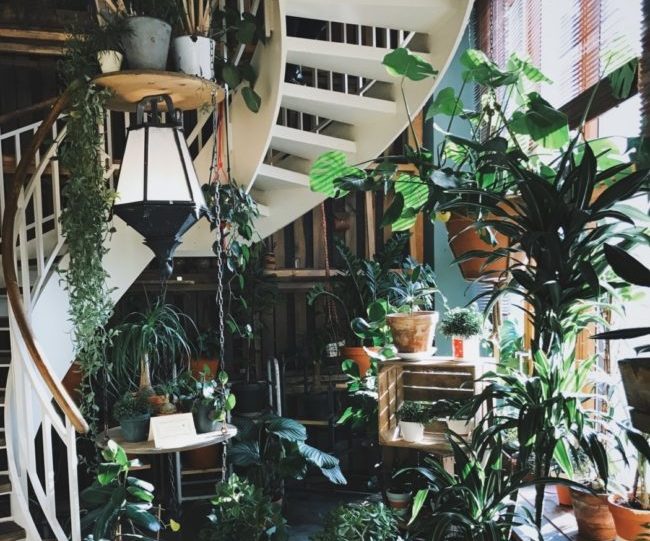Are houseplants bad for the environment?
With 80% of 16-24 year olds owning houseplants, it is clear that they are rising in popularity. Many of us associate plants with cute Instagram pictures and improving our wellbeing. However, there are many disadvantages to owning houseplants. These include negative environmental impacts, which shouldn’t be disregarded.
The rise in popularity can be attributed to the lifestyle of many young people. With busy lives and often having limited space, many people want to keep plants as it allows them to care for something without the commitments that a pet would require. Plants are also portable and can make your house feel more like home. This is especially great if you are renting and not allowed to redecorate.
Houseplants first became popular in the 19th century, thanks to the industrial revolution. People worried about their lack of connection with nature, as well as the increasing air pollution . So, having small plants indoors became very popular. To this day, many people believe that house plants can improve the air quality. But this belief has been said to be over exaggerated. The study supporting this was done by NASA in special chambers, which do not reflect the conditions in real life.
Keeping house plants is a great way to improve your wellbeing
Of course, there is some truth in that plants recycle carbon dioxide into oxygen. However, it is estimated that you would need 10 plants per square metre to be able to compare it to natural air exchange. This being said, research suggests that being surrounded by house plants has wellbeing benefits. So even if it isn’t for the air quality, keeping house plants is a great way to improve your wellbeing.
Unfortunately, many people don’t consider that most houseplants cannot be grown in the UK, due to the climate. They are instead shipped from all over the world. So, while you may be trying to reduce your air travel to help the environment, your plants are still contributing to the global emissions.
Not only this but plants usually come in plastic pots. These are only accepted for recycling by about 10% of local authorities in the UK. Even if the pots are recyclable in the area, they are often not accepted if they are contaminated with soil. Also, many plant pots are made from black plastic, which is undetectable by the machines at recycling centres. Therefore, they often end up in landfills.
Plants usually come in plastic pots which are only accepted for recycling by about 10% of local authorities in the UK
Another thing to keep in mind when purchasing houseplants is what they are grown in. Some plants are sold in peat. This is an earthy soil matter found in waterlogged areas of the UK. Peat is made from decomposed plant matter and can take thousands of years to form. Therefore, removing it on a large scale can be extremely significant to the ecosystems. It can be damaging to surrounding areas, as many organisms live in and around the peat bogs. Due to this, it is more environmentally friendly to choose a plant which is grown in a peat alternative or simply a plant that doesn’t need peat, such as a cactus.
Many garden and community centres across the country are incorporating plant swap schemes where people can bring the plants they no longer want and take another one home. This is a great way to reduce your carbon footprint by not purchasing new packaged plants as well as saving you money. Another great scheme that is currently being trialled is the “take back” pot scheme in B&Q stores where customers can bring back their plastic pots once they have replanted their new plant, and this can then be reused for another plant, hence reducing plastic waste.
Whether you have a large collection of houseplants or none at all, it is never too late to try and be a little bit more sustainable. Recycling or reusing plastic pots, if your plants come in them, are one of the key ways in which you can reduce your carbon footprint whilst still having cute plants in your room.

Comments